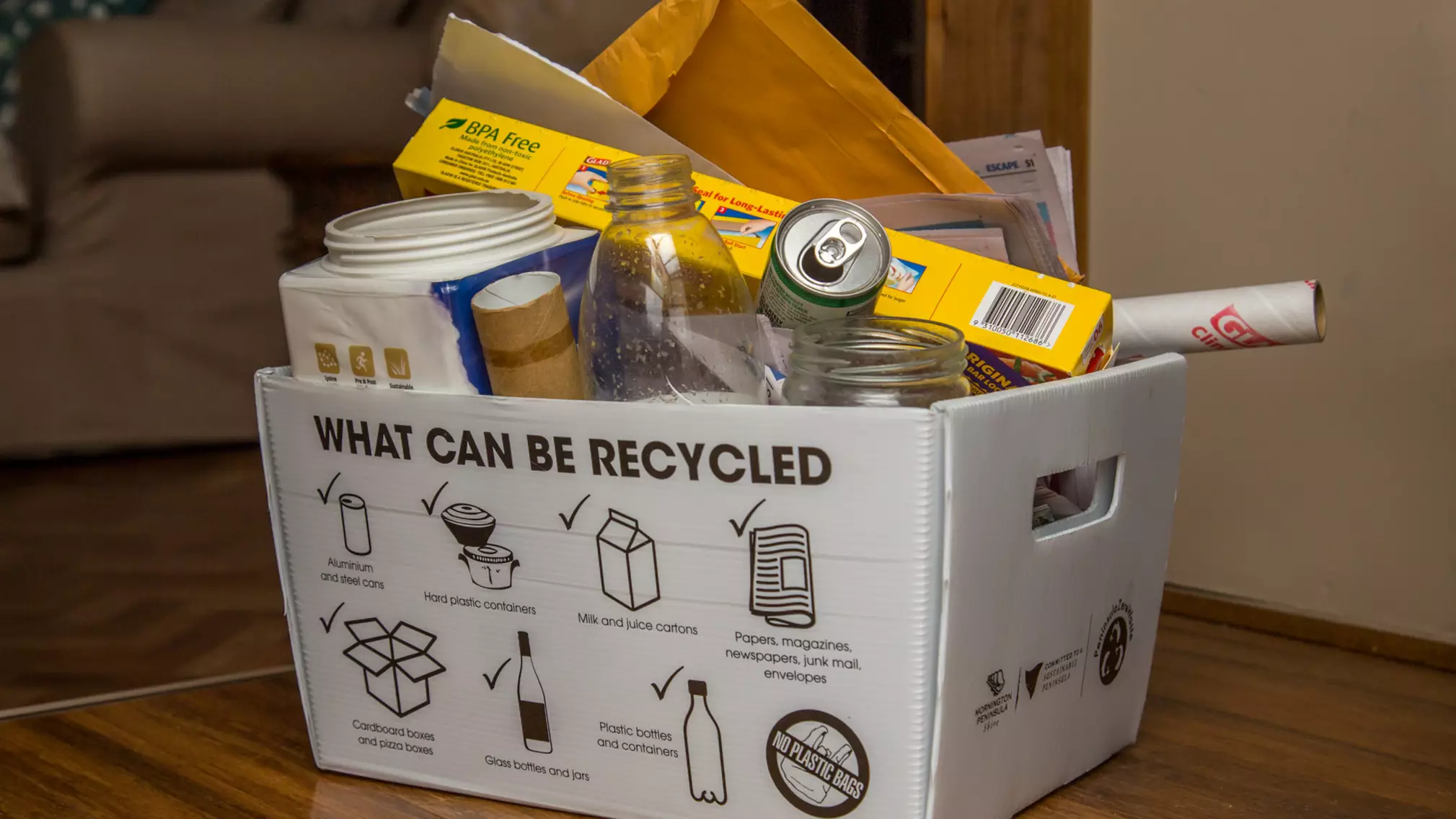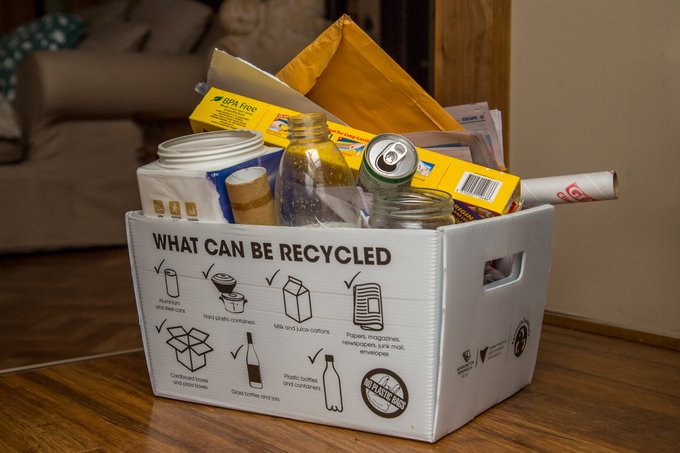
Residents in a Victorian council could now cop a hefty $660 fine if they fail to chuck the right materials into the correct recycling bins.
After adopting its Waste Contamination Policy earlier this month, set to be introduced from July 1, the Mornington Peninsula Shire has announced they will be conducting random bin checks to ensure people weren't slacking off when it came to recycling properly.
"Unfortunately, contamination continues to be a major issue here on the Peninsula. If we don't get our recycling right we will end up contaminating the bin or truck," a statement read.
Advert
Residents who dumped the wrong items in their bins three times in six months will now be fined between $330 and $660 and their bin collection suspended for three months.
Those in breach of the new regulations would also be required to sign a pledge to recycle correctly, as well as attend an education session before their waste collection were to resume.
In a post to Twitter, the council alerted followers to the new rules, writing: "Council adopted the Waste Contamination Policy at its Council meeting Tuesday 2 March.
"During summer, we asked for feedback and what we can do to encourage everyone to take recycling seriously and put the correct items into the right bins."
Speaking to 3AW, Mornington Peninsula mayor, Despi O'Connor, elaborated on the strict new rules, saying the council regularly had to deal with recycling contamination.
Advert
"Every time a truck has to go to landfill rather than the recycling depot, it costs us $600,000 per year to get rid of that waste to landfill," she said.
"We've done a lot of education. We know that it's not just education, it has to come back to policy. We need a policy in place to be behind it."
She added there would be leniency for first-time offenders before they were dealt with harsher penalties.
"It's not like we go and fine them the first time," she said.
Advert
"It's education, talking to the residents, helping them ... if they need support to sort rubbish because not everyone is able to."
Featured Image Credit: TwitterTopics: Australia
